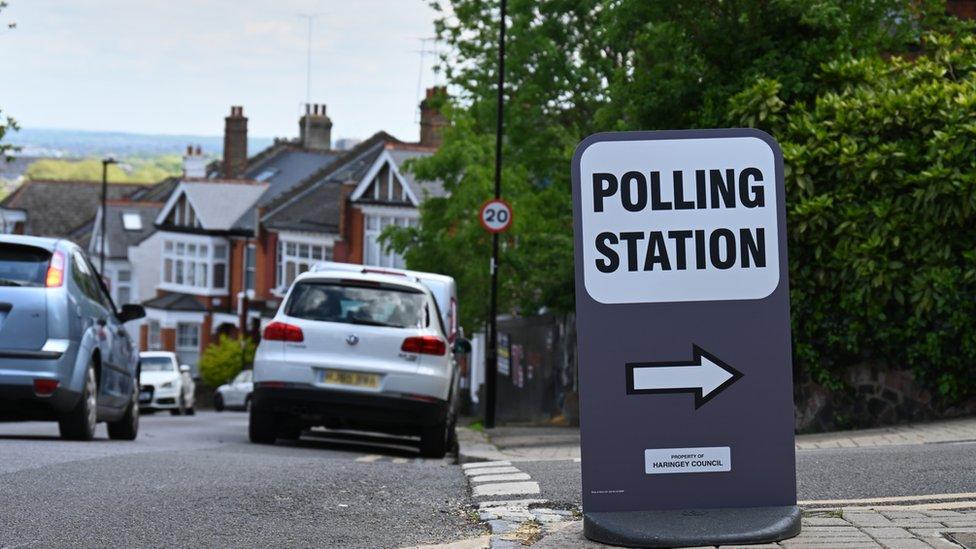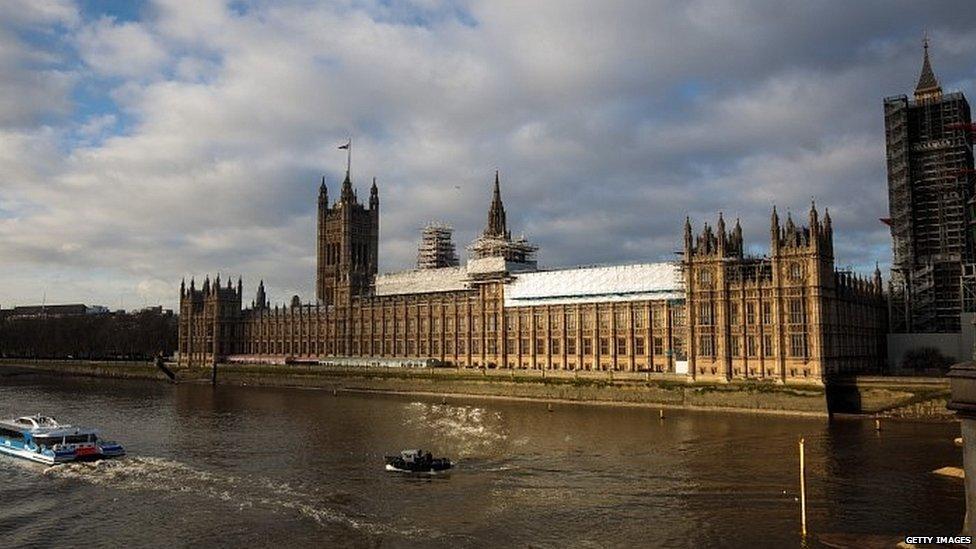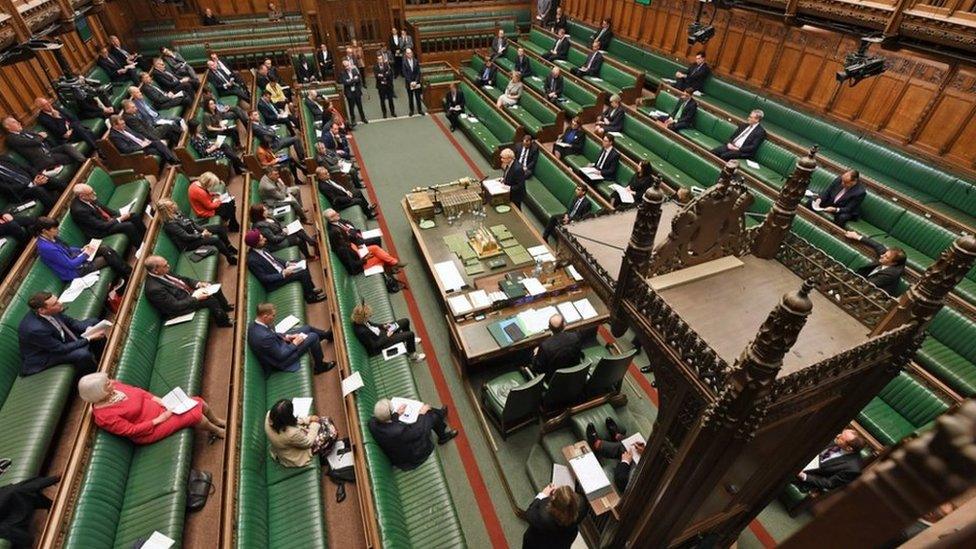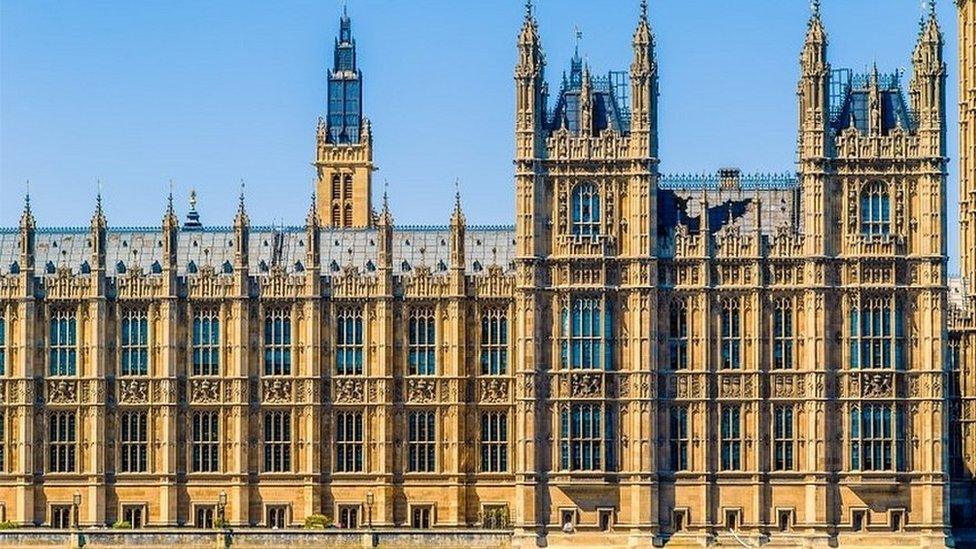Londoners could vote for two more MPs at an election
- Published

Electoral boundary changes could see two new London MPs
Londoners could vote for more MPs at the next general election as part of constituency boundary changes.
The Boundary Commission for England has published its final revised proposals to be finalised by 2023.
How the boundaries are set can be controversial as moving the borders can bring in voters who are in favour of different political parties.
Electoral boundaries, which divide parliamentary constituencies, change every five years.
They are revised to stay in keeping with population changes, so that MPs represent roughly the same number of voters each.
Under the current proposed revision in London, Labour would have potentially won an extra three seats in the 2019 general election.
But across the country, the Conservative Party would have won five more seats.
If the new boundaries are in place in time for the next general election, which has to take place in 2025 at the latest, the number of MPs in London would increase by two, with 75 constituencies in total.
The Conservatives could gain support in former Prime Minister Boris Johnson's Uxbridge & South Ruislip constituency as it would include some new areas that are more Tory leaning.
Tory MP Iain Duncan Smith could be at a disadvantage in Chingford & Woodford Green, where the new boundaries would take in more of Redbridge and become, in theory, more Labour leaning.
Some constituencies would no longer exist at all, like Liberal Democrat leader Sir Ed Davey's Kingston & Surbiton seat, because Kingston town centre would be absorbed into Richmond Park, which is held by his fellow Lib Dem MP Sarah Olney.
Sir Ed has said he would contest the newly created Surbiton & the Maldens seat.
As for Labour leader Sir Keir Starmer, his Holborn & St Pancras seat would remain largely unchanged.
And shadow health secretary Wes Streeting would see moderate changes to the borders of his Ilford North seat, but they would be unlikely to make much difference politically.
The public can have their say until 5 December on the Boundary Commission for England's third and final consultation on the new electoral map, with the final recommendations expected to be submitted to Parliament in July.

Follow BBC London on Facebook, external, Twitter , externaland Instagram, external. Send your story ideas to hellobbclondon@bbc.co.uk, external
- Published25 March 2020

- Published25 March 2020

- Published17 October 2017
